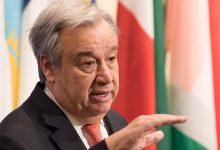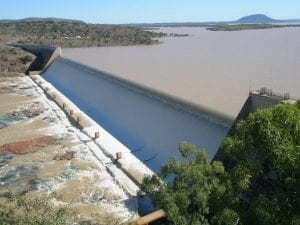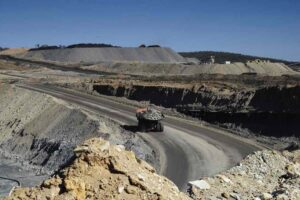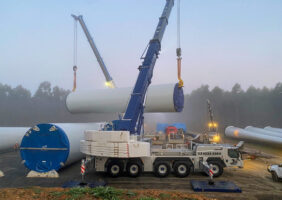UN Secretary-General, António Guterres has written to all world leaders, including Australian prime minister Scott Morrison, asking leaders to “come prepared” to demonstrate plans for achieving zero emissions by 2050, at the summit to be held in New York in September.
Guterres has asked leaders to submit “a brief summary or an indication of the plans” that each nation has to reduce emissions ahead of the summit. The summit will highlight the countries that are taking ambitious action, as a way to encourage a ramping up of commitments under the Paris Agreement.
Guterres will personally convene the Climate Action Summit, in the hope that it can be used as an opportunity to encourage countries to increase their ambition to reduce emissions, particularly as the countries begin to review their emissions reduction pledges under the Paris Agreement.
The Climate Action Summit will be used as a platform to promote countries who are taking meaningful action on climate change, and it is expected that countries that are taking a go-slow approach, like Australia, will seek to downplay their involvement in the summit.
It also highlights the growing pressure on countries like Australia to demonstrate how they will not only meet their “downpayments” promised in Paris, but how they will scale their efforts to reach the actual 2°C target, if not the 1.5°C target.
That implies zero carbon by 2050, if not before. Australia had such a target, but it disappeared along with the carbon price when that mechanism was repealed by the Coalition government in its first term.
“I want to hear about how we are going to stop the increase in emissions by 2020, and dramatically reduce emissions to reach net-zero emissions by mid-century,” Guterres said when he announced the summit.
The contents of the letter, as reported by Climate Change News, included a request from the UN Secretary-General that countries prepare “concrete plans” for achieving zero net emissions, which should include “long-term strategies” for meeting emissions reduction targets.
Countries will also be asked to present plans for increasing the level of financial commitments, including “specific finance commitments” to fund regional actions on climate change.
Scott Morrison has previously indicated that Australia will cease making financial contributions to funds established to fund climate action, including backing away from a pledge by Australia to provide funding to the Green Climate Fund.
Australia recently faced a grilling by other countries at a recent round of the UN climate talks, with Australia being asked to explain increases in national emissions, and whether Australia had any intention of strengthening its emissions reduction targets and whether new emissions reduction policies would be introduced.
Australian representatives pushed back against these questions, saying that it was committed to its existing target to reduce emissions by -26% to -28% by 2030, and that the Australian Government was confident it had sufficient policies in place to meet those targets.
If Australia is to meet its 2030 emissions reduction targets, it will need to rely on the carry-over of surplus permits issued under the prior Kyoto Agreement, which it has gained through questionable emissions accounting, and there is uncertainty around whether such a carry-over will even be allowed.
Despite the lack of action from the Federal Government to ramp up efforts to tackle climate change, momentum has been building at other levels of government. Many local governments, including the Sydney City Council, the Melbourne City Council and the Hobart City Council.
A climate emergency declaration has also been made by the ACT parliament, as has the UK parliament and numerous Australian councils. Additionally, every state and territory, asides from WA and the NT, have set their own goals to achieve zero net emissions by 2050.
The new member for Warringah, Zali Steggell, used her maiden speech in the House of Representatives to call for the federal parliament to make its own declaration of a climate change emergency.
“We can and must respond with the same determination and urgency,” Steggall said in her first speech.
“Two-thirds of Australians see global warming as a significant and pressing problem. It is time to reflect on this with bipartisanship.”
There are questions over Australia’s level of participation and representation at the Climate Action Summit. Scott Morrison will be in the US in the days leading up to the summit, and is booked in to attend a state dinner with US President Donald Trump on 20 September.
Australia’s newly named ambassador to the UN, Mitch Fifield, is a member of the Institute of Public Affairs, which rejects climate science, argues against emissions reductions and is suspicious of UN motives about most things.
The US President is unlikely to engage with the Climate Action Summit, having instigated the United States’ withdrawal from the Paris Agreement, which will come into effect in November 2020.
It is unclear whether Morrison will stay to attend the climate summit on 23 September. Morrison was forced to fend off claims that he had been lobbied by Trump to water down commitments to climate change action in the communique released following the meeting of G20 countries in Osaka held in June.
In recent years, it has been the environment minister that has represented Australia at high-level climate change talks, meaning that it could be either environment minister Sussan Ley or ‘minister for emissions reduction’ Angus Taylor who represents Australia at the Climate Action Summit.
Under the Paris Agreement, to which Australia is a signatory, countries have committed to achieving zero net emissions by the second half of the century. The Paris Agreement also outlines commitments by countries to limit global warming to ‘well below 2 degrees’ above pre-industrial levels and ideally aiming for warming of no more than 1.5 degrees.








